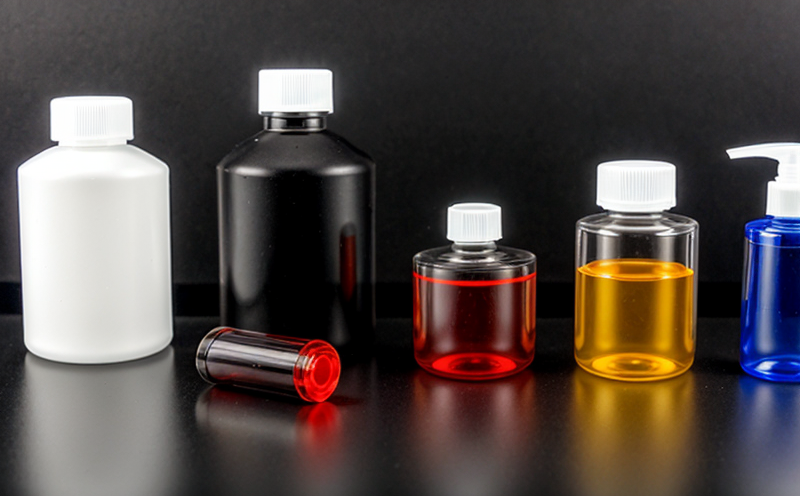ISO 19712 Scratch Resistance of Plastic Surfaces with Nano Coatings
The ISO 19712 standard specifies a method to determine the scratch resistance of plastic surfaces that have been coated or treated with nanomaterials. This is particularly important for industries where durability and protection are critical, such as automotive, electronics, and consumer goods. The test measures how resistant the surface is to being scratched by a specified indenter under controlled conditions.
The standard applies to various types of plastic surfaces that have been treated with nanomaterials or nano additives. These materials can include nanoparticles like carbon nanotubes, graphene, or metal oxides, which are known for their exceptional mechanical and chemical properties. The test is designed to evaluate the performance of these surfaces under real-world conditions, ensuring they meet the stringent requirements set by international standards.
The process involves preparing a sample according to the specified dimensions and then subjecting it to a series of scratches using an indenter with controlled force and speed. The depth and extent of the scratch are measured and recorded. This information is crucial for quality managers, compliance officers, R&D engineers, and procurement specialists who need to ensure that their products meet global standards and perform consistently in various environments.
One key aspect of this test is the use of controlled environmental conditions to simulate real-world exposure. This ensures that the results are representative of how the product will behave under actual usage. The standard also provides detailed guidance on specimen preparation, which includes considerations for surface roughness, cleanliness, and orientation. These factors can significantly influence the outcome of the scratch resistance test.
The ISO 19712 method is widely used in industries that require high-performance materials. For instance, automotive manufacturers use this test to ensure that their coatings resist wear and tear over prolonged periods. Similarly, electronics companies rely on it to protect delicate components from damage during handling or use. In the consumer goods sector, this test ensures that packaging and other surfaces remain intact and protected against environmental factors.
The standard is not limited to just one type of plastic but can be applied to a wide range of materials. This flexibility allows for comprehensive testing across different applications and industries. By adhering to ISO 19712, manufacturers can gain confidence in their products' performance and meet the expectations set by customers and regulatory bodies.
The test's reproducibility is ensured through precise control over variables such as indenter type, force application, speed, and environmental conditions. This consistency is vital for quality assurance and compliance with international standards. The results of ISO 19712 tests are often used in conjunction with other mechanical property tests to provide a comprehensive picture of the material's performance.
In conclusion, the ISO 19712 scratch resistance test provides an essential tool for evaluating the durability and protection of plastic surfaces treated with nanomaterials. Its application across various industries ensures that products meet rigorous standards and perform reliably under real-world conditions.
Benefits
- Enhanced Durability: Ensures that coatings remain intact and protect the substrate from wear over extended periods.
- Improved Quality Assurance: Provides a standardized method for testing, ensuring consistent results across different laboratories and locations.
- Global Compliance: Aligns with international standards, facilitating trade and collaboration between countries.
- Innovation Support: Encourages the development of new nanomaterials by providing clear criteria for performance evaluation.
Why Choose This Test
The ISO 19712 scratch resistance test is chosen for several compelling reasons. Firstly, it offers a standardized approach to evaluating the durability of plastic surfaces treated with nanomaterials. This standardization ensures that tests are conducted in a consistent manner across different laboratories and locations, which enhances reliability and comparability.
Secondly, the test provides valuable insights into the performance of materials under real-world conditions. By simulating typical environmental exposures, manufacturers can better predict how their products will behave in actual use. This predictive capability is crucial for quality managers and R&D engineers who need to ensure that their products meet global standards.
Thirdly, adhering to ISO 19712 aligns with international standards, which is essential for companies operating globally. It facilitates trade by ensuring that products meet the stringent requirements set by various countries, thereby reducing regulatory barriers and enhancing market access.
Finally, this test supports innovation in nanotechnology applications within plastics and polymers. By providing clear criteria for performance evaluation, it encourages the development of new materials with enhanced properties. This continuous improvement is vital for maintaining a competitive edge in the rapidly evolving materials science sector.
International Acceptance and Recognition
- The ISO 19712 standard has gained widespread acceptance across various industries, including automotive, electronics, and consumer goods. Its global recognition ensures that test results are universally understood and respected.
- This standard is widely used in research and development activities to evaluate the performance of nano-coated surfaces under controlled conditions.
The ISO 19712 method has been adopted by numerous laboratories worldwide, ensuring consistent and reliable testing across different regions. This global acceptance enhances trust in test results and facilitates international collaboration between manufacturers and researchers.
By aligning with this standard, companies can ensure that their products meet the highest quality standards, thereby enhancing their reputation and competitive advantage on a global scale. The widespread adoption of ISO 19712 also promotes best practices in materials science and engineering, contributing to advancements in the field.





